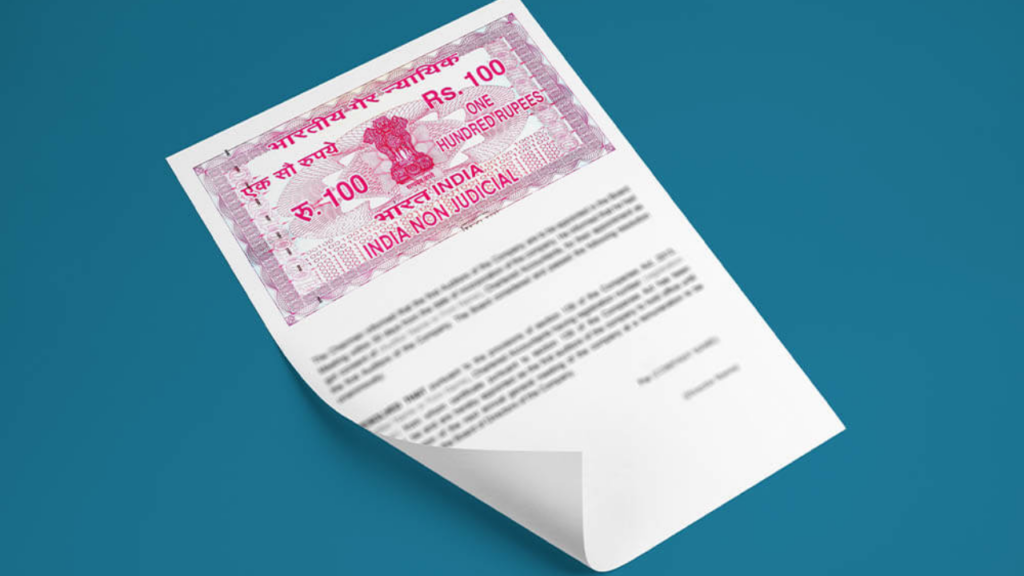Everything You Need to Know About the Stamps and Registration Act
Congratulations! You’ve found your dream home – a place to build memories and watch your life unfold. But before the celebratory housewarming party, there’s a crucial step: ensuring your ownership is secure. This is where the Indian Stamps and Registration Act (1899) comes in as your silent guardian. In this comprehensive guide, we’ll delve into the nitty-gritty of this crucial act and how it plays a pivotal role in safeguarding your precious investment.
- 1 Indian Stamps and Registration Act: An Essential Guide for Homebuyers
- 2 Decoding the Indian Stamps and Registration Act: Its Role in Property Transactions
- 3 Protecting Your Investment: How the Stamps and Registration Act Safeguards Homebuyers
- 4 Securing Property Rights: Importance of Stamps and Registration under the Act
- 5 Complications Regarding IS&RA that You Need to Know Before Buying Real Estate
- 6 Conclusion
- 7 Frequently Asked Questions (FAQs):
Indian Stamps and Registration Act: An Essential Guide for Homebuyers

The Indian Stamps and Registration Act is a combination of two critical laws (two-part shield for your property rights). The Indian Stamp Act of 1899 and The Registration Act of 1908. These acts work in tandem to regulate the registration of property transactions and the payment of stamp duty, which is a tax levied on property transactions. For homebuyers, understanding these laws is crucial as they ensure the legality of the transaction and the authenticity of the ownership. So, whether you’re buying, selling, or leasing property, you can’t escape the clutches of this act.
Decoding the Indian Stamps and Registration Act: Its Role in Property Transactions

It silently watches over your property deals, ensuring everything is above board. One of the primary functions of this act is to determine the appropriate stamp duty payable on various documents, such as sale deeds, lease agreements, and gift deeds. The amount of stamp duty is calculated based on factors like the property’s value, location, and type of transaction. Moreover, the Indian Stamp Act prescribes penalties for non-compliance, such as fines or even invalidation of the document in question. So, it’s not something you want to take lightly!
The second part of the shield – the Registration Act – plays a vital role. It mandates the registration of specific documents related to property transactions, like sale deeds, gifts, and mortgages. This registration creates a public record of ownership, accessible to anyone. This transparency discourages fraud and protects you from someone else claiming ownership of your property.
Protecting Your Investment: How the Stamps and Registration Act Safeguards Homebuyers

By requiring the payment of stamp duty and the registration of the property, the Act safeguards the buyer’s investment. It ensures that the property cannot be sold without the buyer’s consent, thus preventing unauthorized transactions. Moreover, it provides legal recognition and evidentiary value to the documents, which can be crucial in the event of disputes.
Prevents Fraudulent Transactions: Registration ensures a clear chain of ownership, making it difficult for someone to forge documents and claim your property.
Provides Legal Backing: A registered document becomes a powerful legal tool in case of disputes. Courts readily accept registered documents as proof of ownership.
Boosts Marketability: If you decide to sell your property later, a registered deed makes it more attractive to potential buyers who value secure ownership.
Unveil the 50-50 payment plan
Securing Property Rights: Importance of Stamps and Registration under the Act

While the Stamps Act is crucial, registration under the Registration Act holds paramount importance. An unregistered document, even if stamped, doesn’t guarantee complete legal protection. It’s like having a half-built wall – it offers some protection, but not complete security. Here’s a crucial point to remember: Registration has a time limit, typically within four months of document execution. Don’t delay registration, as it could weaken your legal position.
Without proper registration, your rights over the property are akin to a house built on quicksand – shaky and uncertain. Furthermore, registered documents are admissible as evidence in a court of law, which can be crucial in case of any legal disputes. So, by crossing the registration hurdle, you’re not just securing your property rights but also arming yourself with a potent weapon in the battle of legalities.
Complications Regarding IS&RA that You Need to Know Before Buying Real Estate

Insufficient Stamp Duty can lead to invalidity in court. Documents crucial for proving ownership (sale deed, gift deed etc.) might be inadmissible as evidence if stamp duty is not paid or underpaid. This can weaken your case in any legal disputes. Any document that necessitates registration under section 17 of the Act loses its validity for creating, operating, declaring, limiting, or assigning any right title, or interest in immovable property if it is not registered within the specified time frame (usually 4 months).
The amount of stamp duty depends on the property’s market value. Any discrepancies between the declared and actual value can lead to disputes with authorities. Joint Ownership and Multiple Signings need to be handled more delicately. IS&RA has specific rules for documents executed by multiple people at different times. Not following them can cause registration delays.
Unregistered documents can give rise to enforceability issues. Documents affecting immovable property, like sale deeds, require registration to be enforceable. An unregistered deed cannot be used to claim ownership or other rights in court. The act does not directly address the issue of title verification, but the registration process involves documenting the transfer of property rights. However, complications can arise if there are discrepancies in the title or if the property has unclear ownership history. Proper due diligence and title verification are essential to avoid legal issues later on.
Conclusion
The Indian Stamps and Registration Act isn’t just another bureaucratic hurdle in your real estate journey; it’s your shield against potential risks and uncertainties. By adhering to its provisions, you’re not just complying with the law but also safeguarding your investment for generations to come. So, the next time you embark on a property transaction in India, remember the golden rule – abide by the Indian Stamps and Registration Act, and your real estate dreams will be built on solid ground.
Also check out our projects ASBL Spire, ASBL Springs, ASBL Spectra and the newest ASBL Loft
Frequently Asked Questions (FAQs):
No, stamp duty varies from state to state and is determined by the respective state government.
Yes, many states in India now offer online property registration services, making the process more convenient for buyers.
Yes, stamp duty is applicable on gift deeds, and the rate may be lower than that for sale deeds. It must be paid at the time of registration.
The time taken for property registration can vary, but with the introduction of online services, the process has become faster and more efficient.
Sale deeds, gift deeds, mortgages, and leases exceeding a specific duration typically require registration.
You can register documents at the office of the Sub-Registrar in your jurisdiction.
Stamp duty is calculated based on factors like the property’s value, location, and type of transaction. Each state in India has its own stamp duty rates, so it’s essential to check the applicable rates in your area.













